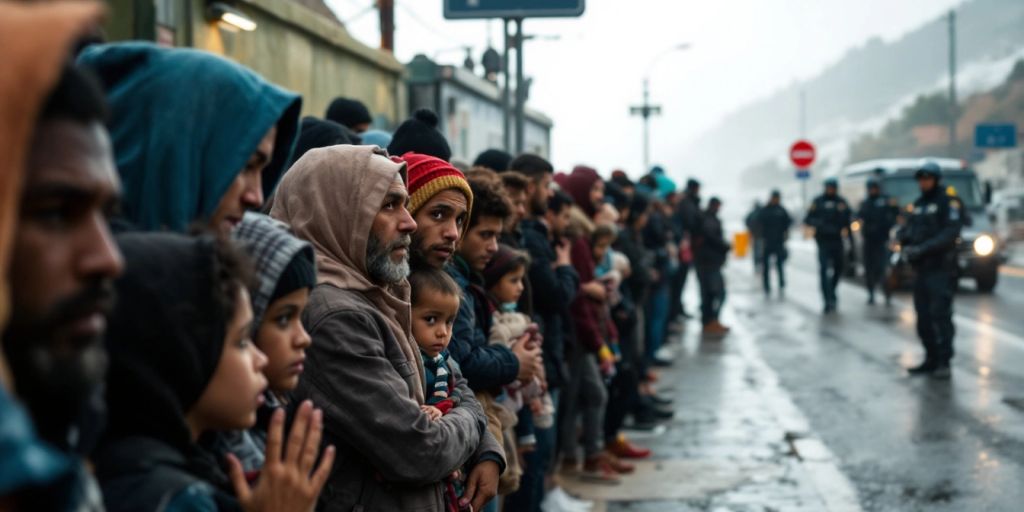Italy’s ambitious plan to process asylum seekers in Albania has encountered significant legal hurdles, as a court in Rome has ordered the return of seven migrants back to Italy. This ruling marks the second setback for the controversial agreement between Italian Prime Minister Giorgia Meloni and her Albanian counterpart, Edi Rama, aimed at outsourcing the processing of migrants intercepted at sea.
Key Takeaways
- A Rome court has blocked the transfer of seven migrants from Albania back to Italy.
- This is the second time a court has overturned the government’s plan to send migrants to Albania.
- The ruling raises questions about the legality of designating certain countries as "safe" for asylum seekers.
Background Of The Deal
In a bid to manage the influx of migrants arriving in Italy, the Italian government signed a five-year agreement with Albania. Under this deal, Italy would establish two processing centers in Albania, with the capacity to screen up to 3,000 migrants per month. The intention was to determine whether these individuals qualify for asylum or should be returned to their home countries.
However, the agreement has faced criticism from human rights organizations, which argue that it sets a dangerous precedent and may violate international laws regarding the treatment of asylum seekers.
Recent Court Rulings
The recent court ruling in Rome has further complicated the situation. The court suspended the detention orders for the seven migrants, who were originally from Egypt and Bangladesh. This decision follows a similar ruling last month, where 12 migrants were also returned to Italy shortly after being sent to Albania.
The judges based their decision on the premise that the countries of origin for these migrants do not meet the criteria to be considered "safe" under European Union law. This legal framework stipulates that a country must be safe in all its regions and for all its citizens to be classified as such.
Tensions Between Government And Judiciary
The court’s decisions have intensified tensions between the Italian government and the judiciary. Prime Minister Meloni’s administration has expressed frustration, accusing judges of politicizing their rulings and undermining national security. In contrast, judges have defended their decisions as necessary to uphold the law and protect the rights of migrants.
Deputy Prime Minister Matteo Salvini criticized the court’s ruling, labeling it a politically motivated decision that jeopardizes Italy’s safety. Meanwhile, Justice Minister Carlo Nordio has called for improved dialogue between the government and the judiciary to reduce political tensions surrounding court decisions.
Implications For Future Migration Policies
The ongoing legal challenges to the Italy-Albania migrant deal raise significant questions about the future of Italy’s migration policies. As the government seeks to implement stricter measures to manage migrant arrivals, the judiciary’s role in interpreting and enforcing EU law will be crucial.
The Italian courts have referred the cases of the returned migrants to the European Court of Justice, which will ultimately determine whether the countries of origin are deemed safe for repatriation. This legal uncertainty could hinder the government’s ability to effectively manage migration and may lead to further complications in its relationship with Albania.
As Italy navigates these challenges, the outcome of the court’s rulings will likely shape the future of its approach to asylum seekers and its broader immigration strategy.
Sources
- Italy-Albania Migrant Deal Branded ‘Failure’ After Court Ruling | Balkan Insight, Balkan Insight.
- Judges block Albania model again and order return of 7 migrants to Italy | Euronews, Euronews.com.
- play, Al Jazeera.
- Rome court blocks Meloni’s plans to transfer migrants to Albania again – Euractiv, Euractiv.
- Italy’s plan to screen migrants in Albania hits another snag with 2nd group returning to Italy | AP News, AP News.






